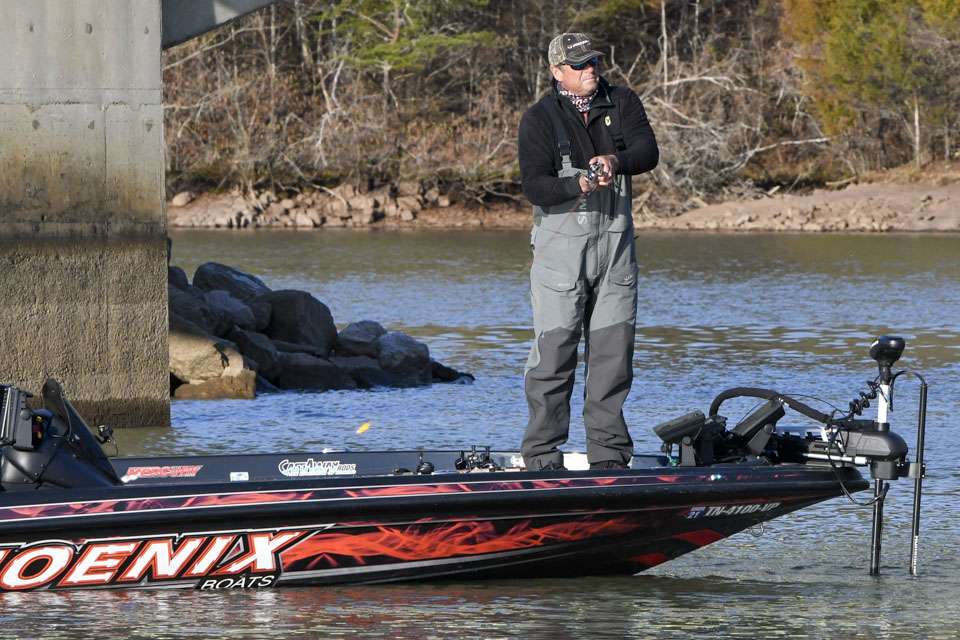
I fished my first Bassmaster event 40 years ago. It was an invitational at Lake of the Ozarks in which two pros were paired and shared the same boat.
And man, did I get an education.
My partner was Texan Randy Behringer who took me up a creek and began flipping. It was a technique I had heard of but never experienced until that day. He was using a big rod and all I had was a 5 1/2-foot rod with a pistol grip handle.
I learned quickly and caught 15 pounds that day.
That’s the beauty of a long career in competitive angling. The opportunity to learn never ends.
Sure, you will learn techniques and lure tricks. That’s a given. But the wisdom I’ve gained over four decades has gone well beyond new lures and techniques.
Here are some things I’ve discovered that kept me competitive through the years:
1. Embrace the technology
We may not have had today’s sophisticated equipment in those early days, but technology was evolving in rod materials and fishing lines. Our electronics weren’t as sophisticated as today’s, but the anglers who truly understood and utilized the fish finders of yesteryear were those who consistently did well.
Modern electrics come easy for today’s young anglers while some older folks dismiss them. Don’t be that guy – spend time on the water, learn the capabilities of these electronics and you will become a much more efficient angler.
2. Learn from everyone you fish with
And it doesn’t have to be an experienced angler. I’ve learned something from people who have had far less fishing experience.
I remember one tournament at Lake Amistad when it was really cold and hard to catch fish. I was in an area fishing a jig and my co-angler rigged a watermelon seed Senko with a 1/8-ounce sinker and caught two bass behind me. That clued me in, and we worked together. I had never considered a Senko in those kind of conditions.
3. Work on your weaknesses
It’s easy to rely on your strengths all the time, but if you’re going to be competitive, you have to work on weaknesses. It doesn’t matter whether you are a recreational or tournament angler, gaining confidence in new techniques will make you better.
For example, early on I wasn’t a good drop shotter. Before the Bassmasters made a swing into north country, I spent time practicing and learning the little idiosyncrasies. I became a pretty good drop shotter and did well when we went north.
4. Stay loose and open-minded
This is really important in multiday tournaments where conditions often change. Anglers who adjust throughout an event move up the leaderboard; those who don’t move down.
Study weather and water conditions forecast for the duration of the tournament and factor that into your practice. Consider where the fish might go with changing conditions and how they might react. If it’s a spring event, get in front of the fish and be in a position so that they are coming to you.
5. Don’t listen to dock talk
I generally don’t hang with a bunch of people during an event. There’s too much dock talk that can get in your head. However, it is important to find a few fellow anglers you can trust and share information that is genuine.
6. Take care of your body.
Partying with your buddies late at night will affect your performance the next day. Eat properly, drink a lot of water and get plenty of sleep.
You will not only need the energy, but it will keep your mind sharp to recognize those subtle conditional changes that can lead you to the next big bite.

